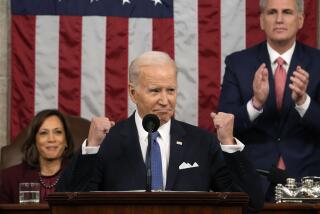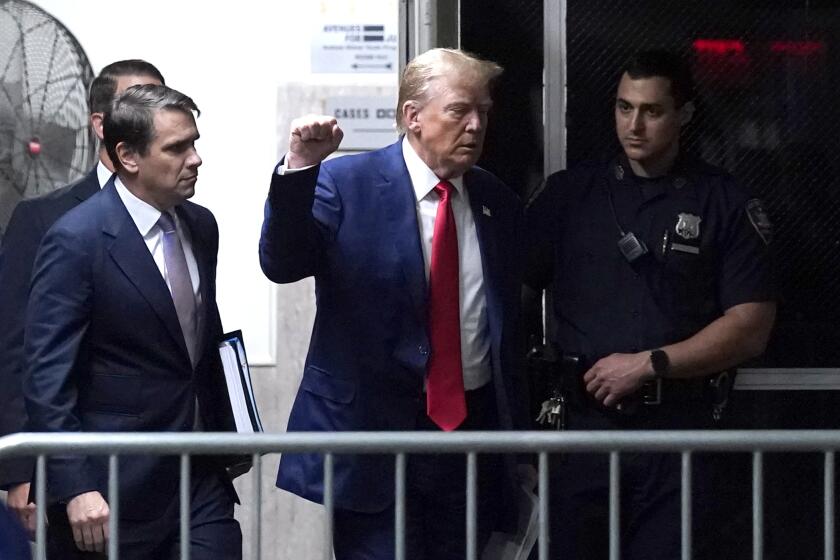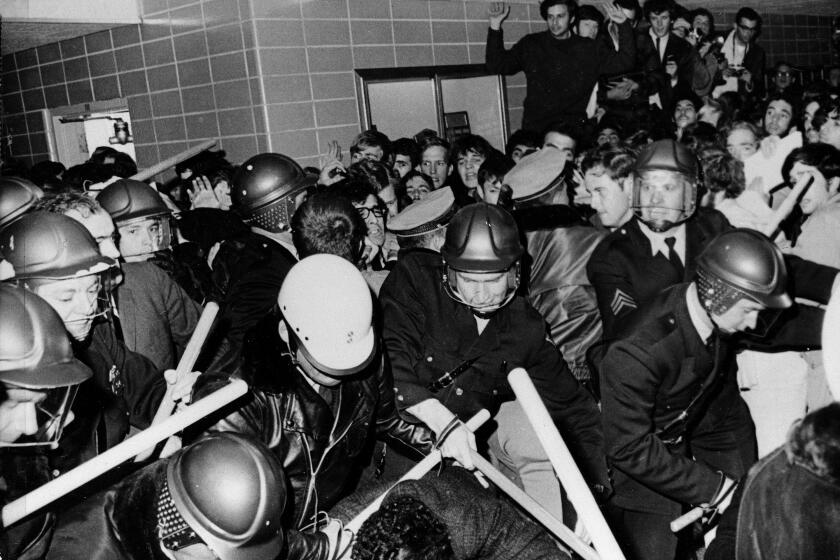The cosmo patriot
President Obama’s resurrection of Cold War iconography in last week’s State of the Union address — calling for a new “Sputnik moment” that would inspire American workers to “win the future” — sounded a lot like old-fashioned “America First” rhetoric and not so much like a leader in the new globalized world order.
Of course, the State of the Union is a showcase speech for domestic concerns. Even so, you’d expect at least an echo of the internationalist, “we’re all members of the human family” fervor that was so evident in Obama’s 2008 campaign and his early days of the presidency. Where was foreign policy? And where was his famous “cosmopolitan” streak?
It’s tempting to see the 2011 State of the Union speech as a flip-flop in the president’s outlook — the end of a visionary kumbaya moment and the embrace of a more politically advantageous, red-blooded American patriotism.
But the truth is, a postmodern “human family” worldview has never been at odds with a more traditional form of American patriotism, even one based on the desire to be better than everyone else.
Three short years ago, Obama’s cosmopolitanism — the notion that all humans belong to a single community linked by a shared morality — was a given.
One contributor to Talking Points Memo cheerfully labeled him “cosmopolitanism’s first national torch bearer,” as much for his biracial, multinational background as for his penchant for bridge-building and reconciliation. Obama didn’t disappoint.
In 2008, when candidate Obama spoke to a 200,000-strong crowd in Berlin, he insisted that “partnership and cooperation among nations” was the “only way to protect our common security and advance our common humanity.” Employing his best Sunday school logic, he urged the world to “listen to each other, learn from each other, and most of all, trust each other.”
Likewise, the tone he took in his 2009 speech to the Muslim world in Cairo seemed to leave no room for the “us against the world” patriotism of old. “Given our interdependence,” he intoned, “any world order that elevates one nation or group of people over another will inevitably fail.”
Predictably, such showy emphasis on outreach left Obama open to attack on the home front. At their most benign, his critics saw him as rootless and detached. The Wall Street Journal’s Peggy Noonan complained that he lacked “placeness.” Instead, she wrote, “He’s from Young. He’s from the town of Smooth in the state of Well Educated. He’s from TV.”
At their harshest, his critics called Obama soft on America’s enemies, unpatriotic and downright disloyal.
But is cosmopolitanism unpatriotic? Does it presuppose a lack of attachment? And is it at odds with Obama’s call for Americans to “out-innovate, out-educate and out-build the rest of the world”?
Princeton philosopher Kwame Anthony Appiah, one of cosmopolitanism’s most important theorists and champions, says no. He argues that “cosmopolitan patriotism” is not an oxymoron.
“We cosmopolitans,” he writes, “can be patriots, loving our homelands (not only the states where we were born but states where we grew up and the states where we live); our loyalty to humankind — so vast, so abstract, a unity — does not deprive us of the capacity to care for lives nearer by.”
You can also work the logic from the opposite direction. Loving one’s country — which is to say, loving what you know — has to be the starting place for concern for the rest of the world. It’s only by extrapolating from our families, our neighbors, our nations that we can “love” abstract humankind. In other words, patriotism can’t be antithetical to cosmopolitanism because it’s a prerequisite.
Nor is fierce international competition — like the kind Obama called for and the kind China, India and the U.S. are engaged in — incompatible with the idea of global cooperation. This may in fact be the place where kumbaya thinking and Sputnik thinking meld best.
The U.S. can’t turn back the clock to when its Edisons and its Ford Motor companies dominated. More important, it shouldn’t try. Instead, we should keep our competitors close. The best way, the only way, to keep an innovative edge is to work closely with the rest of the world’s achievers, to absorb and capitalize on their innovations and insights.
Last week, Obama’s Sputnik rhetoric drowned out his globalist rhetoric. But in this highly competitive global market, cosmopolitan patriotism is the wave of the future — even America’s future.
grodriguez@latimescolumnists.com
More to Read
A cure for the common opinion
Get thought-provoking perspectives with our weekly newsletter.
You may occasionally receive promotional content from the Los Angeles Times.






